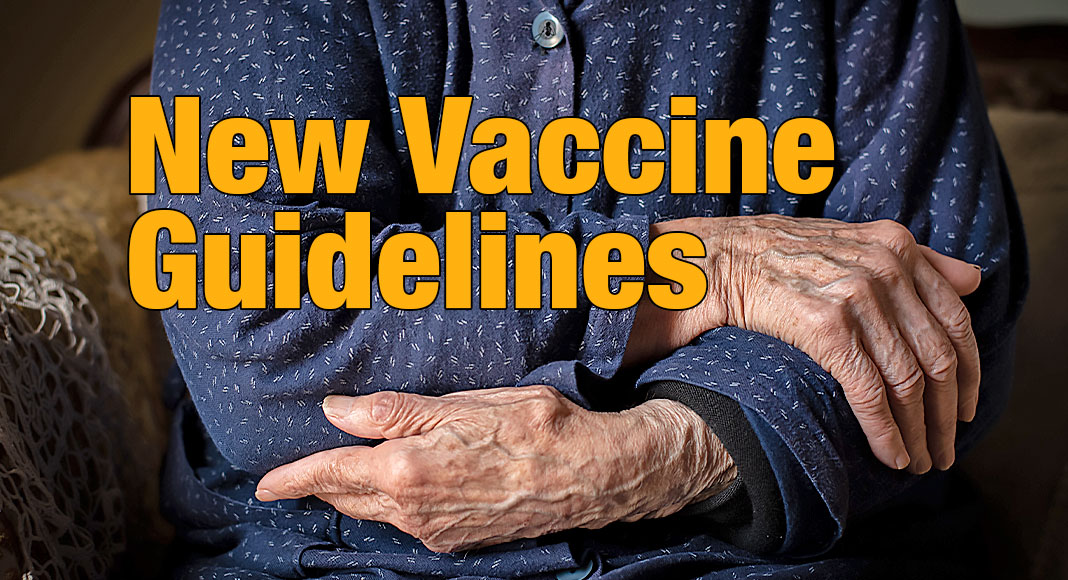
Mega Doctor News
by American College of Rheumatology (ACR)
Newswise — ATLANTA — The American College of Rheumatology (ACR) released a summary of its new treatment guideline for Vaccinations in Patients with Rheumatic and Musculoskeletal Diseases (RMDs). The effectiveness and safety of vaccines may differ in rheumatology patients as compared to the general population. The guideline summary provides recommendations on topics such as broadened indications for some vaccines in patients on immunosuppressants, medication management at the time of vaccination, and safe approaches to the use of live attenuated vaccines in patients on immunosuppressive medications.
“Patients worry about the safety of vaccines and the potential for inducing a disease flare. Providers are concerned whether rheumatic diseases and the medications used to treat them could blunt the effectiveness of vaccines,” said Anne R. Bass, MD, Professor of Clinical Medicine, Hospital for Special Surgery and Weill Cornell Medicine in New York. “They also want to know whether certain vaccines should be given to protect rheumatology patients who are outside the age range for which they are typically recommended. This guideline was designed to address these issues.”
A few highlights of the new guideline include:
- Pneumococcal vaccination should be administered to all RMD patients taking immunosuppressive medications.
- Seasonal influenza vaccination should be administered to RMD patients even if their disease is active, they are taking high- dose glucocorticoids, and/or they are on rituximab.
- Methotrexate should be held for two weeks after influenza vaccination if disease activity allows.
- In RMD patients on rituximab, vaccines other than influenza should be administered at least 6 months after the last rituximab dose.
One recommendation that differs from current standards is to administer the rotavirus vaccine in the first 6 months of life to infants who have been exposed to tumor necrosis factor (TNF) inhibitors in utero. Rotavirus is a contagious virus that is most common in infants and young children. Currently, pediatricians postpone vaccination in these TNF-inhibitor exposed children until they are a year old.
The guideline also recommends a shorter interval between the last dose of a biologic disease modifying anti-rheumatic drug (DMARD) and administration of a live attenuated (a weakened form of the germ that causes the disease) vaccine.
“This new guideline recognizes that some patients, particularly very young children with autoinflammatory conditions, simply cannot stay off their medications for very long without having a severe flare of their disease. However, those patients still need to get vaccinated,” said Dr. Bass.
The guideline recommends giving the adjuvanted (an ingredient of a vaccine that helps promote a better immune response) influenza vaccination to patients under 65.
“This might come as a surprise to some providers since it hasn’t been directly tested in that age group, but there are no safety signals in the older population,” said Dr. Bass. “There might be concerns about lack of insurance coverage for vaccines recommended outside the typical age range, but the guideline itself will be a useful resource when discussing reimbursement with insurance companies.”
Recommendations for COVID-19 vaccination in RMD patients was not included in the guideline. Readers can refer to the CDC for the most up-to-date recommendations for COVID-19 vaccination, including for patients on immunosuppressive medications. Recommendations about holding immunosuppressive medications at the time of non-live attenuated virus vaccination in this guideline differ from those recommended around the time of COVID-19 vaccination in the ACR COVID-19 Vaccine Guidance.
“This is because prior to the introduction of COVID-19 vaccines in late 2020, there was little population-level immunity to the SARS-CoV-2 virus, and maximizing vaccine efficacy was a public health imperative,” said Dr. Bass.
A full manuscript has been submitted for journal peer review and is anticipated to be published in rheumatology journals in early 2023. The complete summary of the guideline recommendations can be viewed on the ACR website.
About the American College of Rheumatology
Founded in 1934, the American College of Rheumatology (ACR) is a not-for-profit, professional association committed to advancing the specialty of rheumatology that serves over 7,700 physicians, health professionals, and scientists worldwide. In doing so, the ACR offers education, research, advocacy and practice management support to help its members continue their innovative work and provide quality patient care. Rheumatology professionals are experts in the diagnosis, management and treatment of more than 100 different types of arthritis and rheumatic diseases. For more information, visit www.rheumatology.org.









